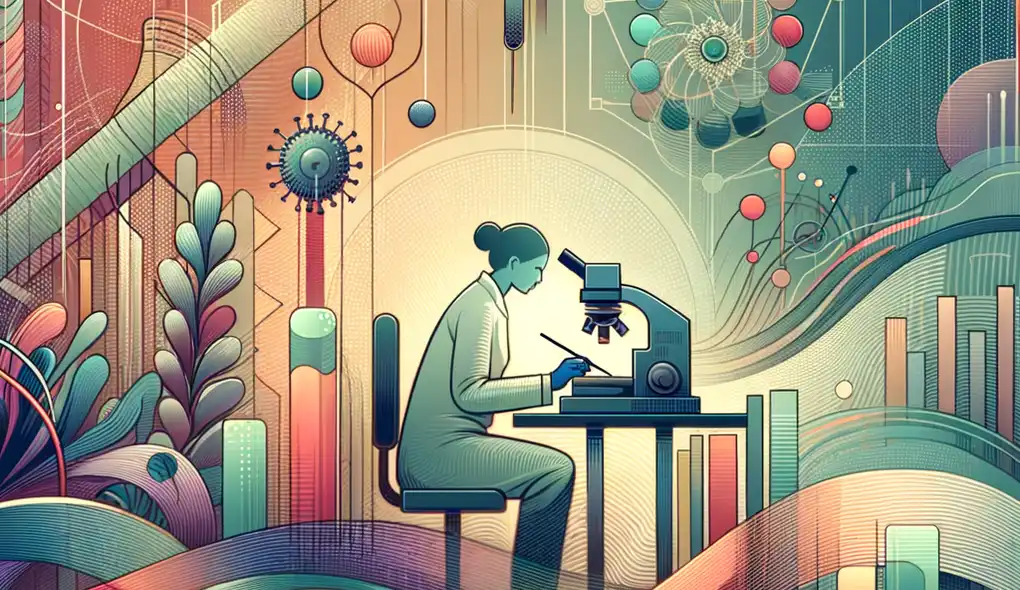Can you provide an example of a challenging data analysis problem you have encountered and how you solved it?
Microarray Analyst Interview Questions
Sample answer to the question
One challenging data analysis problem I encountered was analyzing a large dataset of gene expression data from a microarray experiment. The dataset had thousands of genes and samples, making it difficult to identify patterns and correlations. To solve this problem, I first cleaned and pre-processed the data to remove noise and normalize the values. Then, I performed statistical analysis to identify differentially expressed genes between groups. I used visualization techniques to explore the data and identify potential outliers or errors. Finally, I conducted pathway and gene ontology analysis to gain insights into the biological significance of the differentially expressed genes.
A more solid answer
One example of a challenging data analysis problem I encountered was analyzing a microarray dataset from a genetic study on cancer. The dataset consisted of gene expression profiles of tumor samples and normal samples, and the goal was to identify genes associated with cancer progression. To solve this problem, I first assessed the quality of the data, checked for outliers, and performed data normalization and batch correction. I then conducted differential gene expression analysis using statistical methods. To validate the findings, I utilized public databases and literature to confirm the biological relevance of the identified genes. The results of my analysis were presented to the research team, and some of the genes were further investigated in functional studies. This project helped me enhance my skills in data analysis, microarray technology, statistics, and laboratory practices.
Why this is a more solid answer:
The solid answer provides a more detailed description of the challenging data analysis problem and the candidate's approach to solving it. It includes specific details about the dataset, the techniques used for data preprocessing and analysis, and the validation process. It also mentions the candidate's experience with microarray technology, statistics, and laboratory practices. However, it could still be improved by discussing the record-keeping aspect of the job and providing more specific outcomes and achievements.
An exceptional answer
One challenging data analysis problem I encountered was analyzing a large-scale microarray dataset to identify potential therapeutic targets for a complex genetic disorder. The dataset contained gene expression profiles from multiple tissue types and different disease stages. To tackle this problem, I developed a comprehensive analysis pipeline that involved data preprocessing, quality control, normalization, and batch correction. I then employed advanced statistical methods, such as network-based analysis and machine learning algorithms, to identify key genes and pathways associated with the disorder. The identified targets were cross-validated using independent datasets and further investigated in cellular and animal models. As a result of this project, we discovered novel therapeutic targets that are currently being explored in clinical trials. This experience not only showcased my expertise in data analysis, microarray technology, and statistics but also demonstrated my ability to contribute to impactful research in the field of genetics.
Why this is an exceptional answer:
The exceptional answer provides a more comprehensive and impactful example of a challenging data analysis problem. It highlights the complexity of the dataset and the candidate's ability to develop a sophisticated analysis pipeline. It also mentions the use of advanced statistical methods and cross-validation techniques. Furthermore, it emphasizes the real-world impact of the candidate's work by mentioning the discovery of novel therapeutic targets and their progression to clinical trials. This answer demonstrates the candidate's expertise in data analysis, microarray technology, statistics, laboratory practices, genetics, and software proficiency.
How to prepare for this question
- Familiarize yourself with different types of microarray data analysis techniques, such as data preprocessing, quality control, normalization, and statistical analysis.
- Highlight any experience you have with microarray technology, statistical software, and laboratory practices in your past projects or research.
- Be prepared to explain how you assess the quality of microarray data and deal with potential issues, such as outliers or batch effects.
- Demonstrate your ability to validate and interpret the results of your data analysis using relevant biological databases or literature.
- Discuss any experience you have with cross-validation or the application of your findings in real-world settings.
- Emphasize your strong analytical and problem-solving skills, as well as your ability to work effectively in a team.
What interviewers are evaluating
- Data analysis
- Microarray technology
- Statistics
- Laboratory practices
- Record keeping
Related Interview Questions
More questions for Microarray Analyst interviews